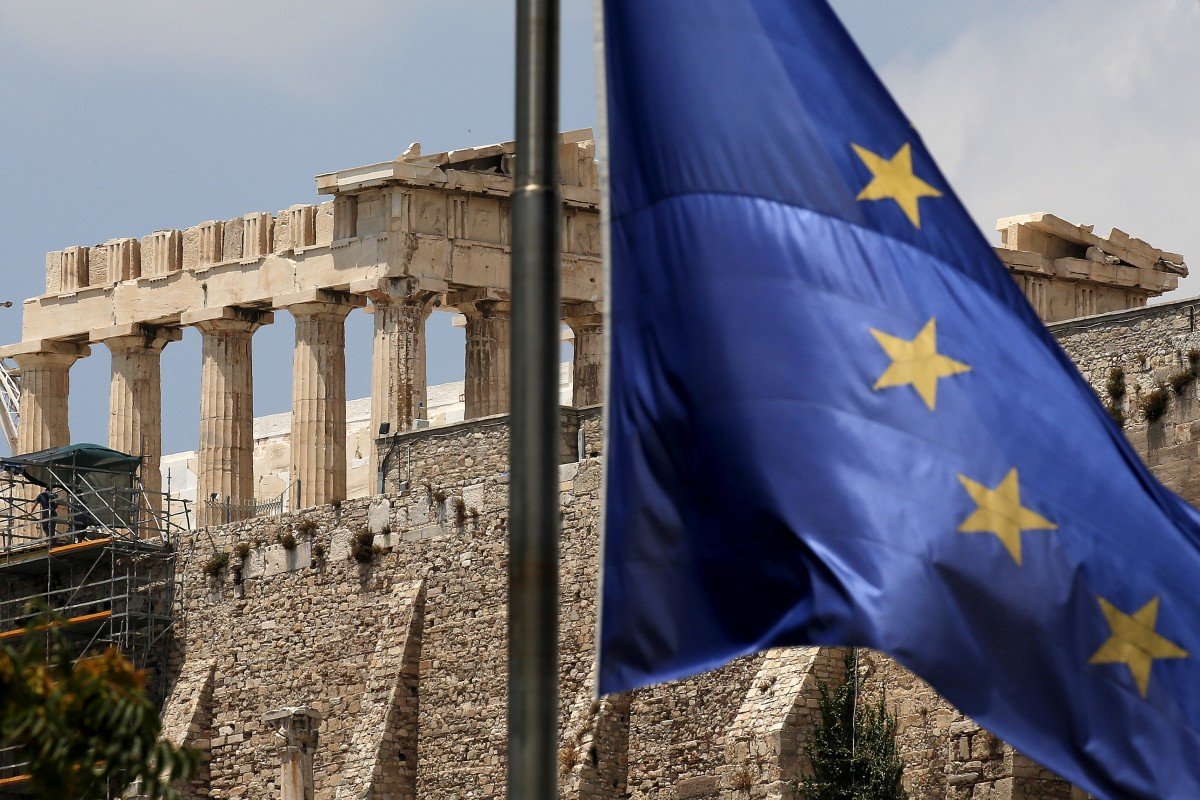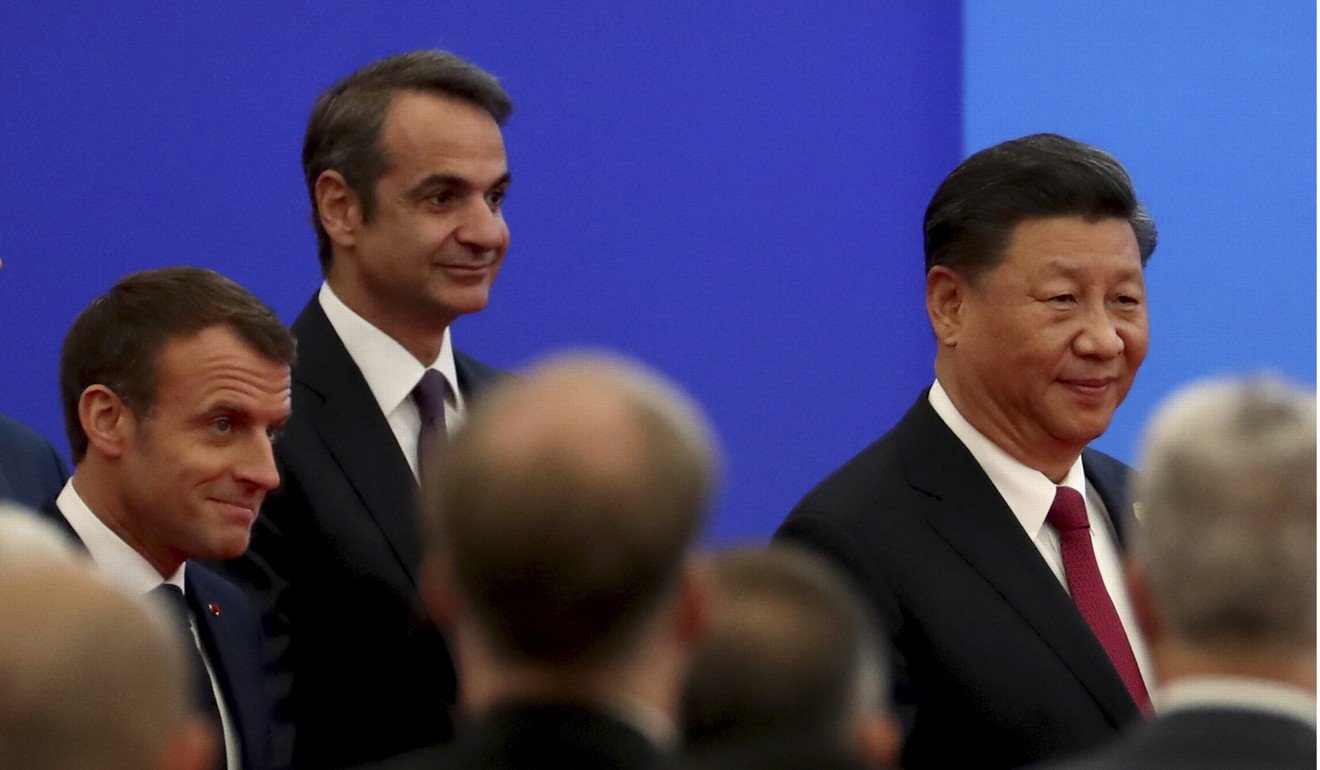
Greece set to welcome Chinese President Xi Jinping as EU, US look on with concern
-
Greek Prime Minister Kyriakos Mitsotakis will be keen to secure Chinese investment without upsetting his allies in Brussels, Washington
-
Xi is expected to visit Cosco-run port of Piraeus and witness the opening of a new Bank of China branch in Athens
Xi is set to meet Greek Prime Minister Kyriakos Mitsotakis for the second time in a matter of days, after Mitsotakis visited Shanghai earlier in the week for the China International Import Expo. On that occasion Xi floated the possibility of Greece “becoming a logistics centre” for handling Chinese goods exported to Europe.
During his three-day trip, Xi is expected to visit Piraeus – the Mediterranean Sea port controlled by China’s state-owned Cosco – witness the opening of a new Bank of China branch in Athens, and visit historical sites such as the Acropolis.

Mitsotakis – whose election win in July was premised on a vision to transform Greece into a hub for foreign investment as well as turning it into an export-led economy – will be keen to secure Chinese investment.
However, EU and US diplomats will be looking on with caution as China continues to show an interest in Greece, and especially in relation to Athens’ participation in the Beijing-led “17+1” cooperation platform that includes Eastern and Southeastern European countries that are both inside and outside the EU.
Brussels has accused the Chinese initiative, which Greece joined earlier this year, of trying to divide the bloc.

Plamen Tonchev, head of the Asia unit at the Institute of International Economic Relations in Athens, said Mitsotakis saw the platform as a way for Greece to increase it stature in the region.
“Greece joined under the previous government, [but] Mitsotakis will not pull the country out as long as he sees it as an opportunity to claim back Greece’s role in Southeast Europe and particularly in the Western Balkans,” he said.
An EU official, speaking on condition of anonymity, said China “may ask Greece to play a bigger role in coordinating the 17+1, as some European parties to the initiative are already lukewarm about it”, mostly because they felt there was a lack of financial benefit.
An adviser to the Mitsotakis government said that from Athens’ perspective, the key issue was striking a balance between building better investment and trade relations with China while refraining from “showing the way” to Beijing as it seeks to boost its geostrategic interests in Eastern Europe.
“The prime minister is fully aware of the EU’s concern over China’s intentions, and he is not going to go against it,” said the person, who asked not to be named.
Greece’s relationship with China has not escaped Washington’s attention. During his visit to Athens in October, US Secretary of State Mike Pompeo repeatedly warned of China’s growing influence in Europe, accusing it of “using economic means to coerce countries into lopsided deals that benefit Beijing and leave its clients mired in debt”.
While Greece receives less than 1 per cent of China’s total investment in Europe, its control and expansion of Piraeus port has raised concern. Cosco has been operating it for a decade and is on course to make it the busiest container terminal in the Mediterranean by the end of the year.
In October, Athens approved two-thirds of the company’s plans to expand the port, with investments totalling US$670 million in projects including a new cruise port, four hotels and a car terminal. The rest of the plan was rejected in April by Greece’s Central Archaeological Council, after it effectively classified half of Piraeus as an archaeological site.
“The approval of a fourth pier, which has not been granted by Greek authorities to date, will most probably be on the list of talking points [for Xi and Mitsotakis],” Tonchev said.


